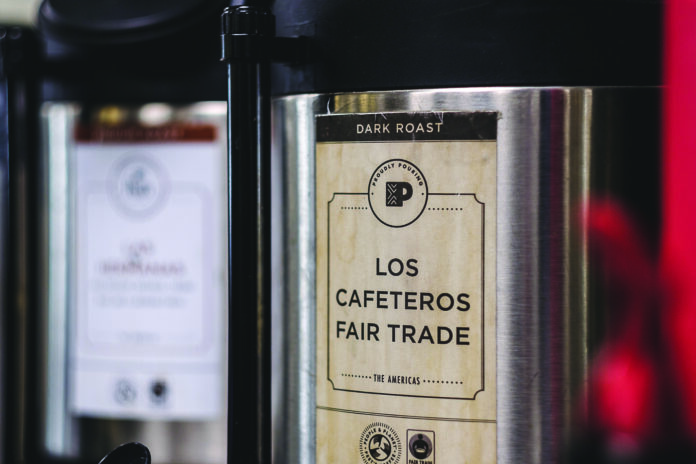Senate passes resolution for social justice and environmental sustainability
With UC Davis’ commitment to sustainability initiatives, the university will continue to support social justice and environmental sustainability as ASUCD encourages the university’s transition to become a fair-trade university through Senate Resolution #7.
Growers of coffee, tea, cocoa and other products are often paid low wages, and millions of children worldwide are engaged in child labor. Fair-trade practices ensure fair wages, safe working conditions and environmental sustainability. These practices also prohibit forced labor of any kind.
The resolution endorses the incorporation and promotion of fair-trade products into campus dining services to support proper working conditions for people and communities that are commonly exploited by conventional food systems.
Though many campuses across the nation have active fair trade campaigns, UC Santa Cruz and UC Davis are the closest to becoming the first UCs to achieve fair-trade status. SR #7 passed unanimously on Jan. 9 after its introduction by the Environmental Policy and Planning Commission (EPPC) Chair Kyle Krueger.
“The fair-trade label is supposed to ensure that the workers who make a product are treated fairly and that the environment is taken into account in that production,” Krueger said. “We don’t want to be externalizing our impacts on marginalized groups.”
Krueger said he was happy to take the baton and finish the Fair Trade Initiative, which his EPPC Chair predecessor Alice Beittel started about two-and-a-half years ago. He said the Fair Trade Campaigns organization provides the designation of becoming a fair-trade university and that EPPC has worked to receive this designation through educational programming and working closely with dining services on campus.
Over the past couple of years, EPPC has maintained frequent check-ins to ensure accountability with outlets throughout campus. EPPC continues to work with Student Housing and Dining Services and Associated Students Dining Services to establish a long-term plan to increase procurement of fair-trade products in all dining commons and other campus outlets such as The Silo, The CoHo, Biobrew, Peet’s Coffee and catering. In addition to fair-trade food products, the resolution urges campus outlets to include apparel and handicrafts such as jewelry and other gift items.
In 2015, UC President Janet Napolitano unveiled The Fair Wage/Fair Work Plan which included the requirement that “all UC contractors undergo an annual compensation audit to ensure they are paying their employees at a level at or above UC’s minimum wage and complying with all local, state, federal and UC workplace laws and policies.”
The Fair Wage/Fair Work Plan requirement, other university requirements for ethical sourcing of products and the newly passed fair trade resolution will work in conjunction to incorporate more environmentally and socially responsible contracts for producers and food vendors.
Through the fair trade resolution, ASUCD aims to inspire other institutions and organizations to support Fair Trade and enhance its image as a leader in sustainability and social justice issues.
With this long-term commitment and respective responsibilities, Krueger explained that the transition to fair trade also poses potential maintenance issues as a result of leadership turnover.
“Something we see sometimes in student government is that the rapid turnover leads to the inability to maintain long-term projects,” Krueger said. “I would make sure that we have properly defined roles that keep us involved in frequent conversations with Student Housing and Dining Services and The CoHo to make sure that they’re being held accountable and that we’re maintaining the goals that we set forth.”
Krueger also addressed the possible challenge of pricing of fair-trade products.
“These products do sometimes cost a little more, but one of the reasons why we want to hit the educational aspect hard is to demonstrate to people why they might be worth buying,” Krueger said. “We’re also careful to make sure that there are lower priced products in these outlets as well for students who can’t afford something like fair-trade [products].”
Similar to the implementation of zero waste by 2020 and the Carbon Neutrality Initiative, the university will commit to explore and expand the incorporation of fair-trade procurement through SR #7.
“[The university] has had fair-trade products on campus, catering options, educational events and other things that we’ve been working on over the past couple of years,” Krueger said. “The resolution is a culmination of that and is the final step to recertify the university’s commitment to a lot of the values of fair trade.”
Written by: Graschelle Fariñas Hipolito — campus@theaggie.org





UC Davis encouraged to (somehow) become even more economically illiterate and (somehow) become even more enthralled by shallow rhetoric promulgated by anti-intellectual demagogues that hurt the very causes they purport to care about.